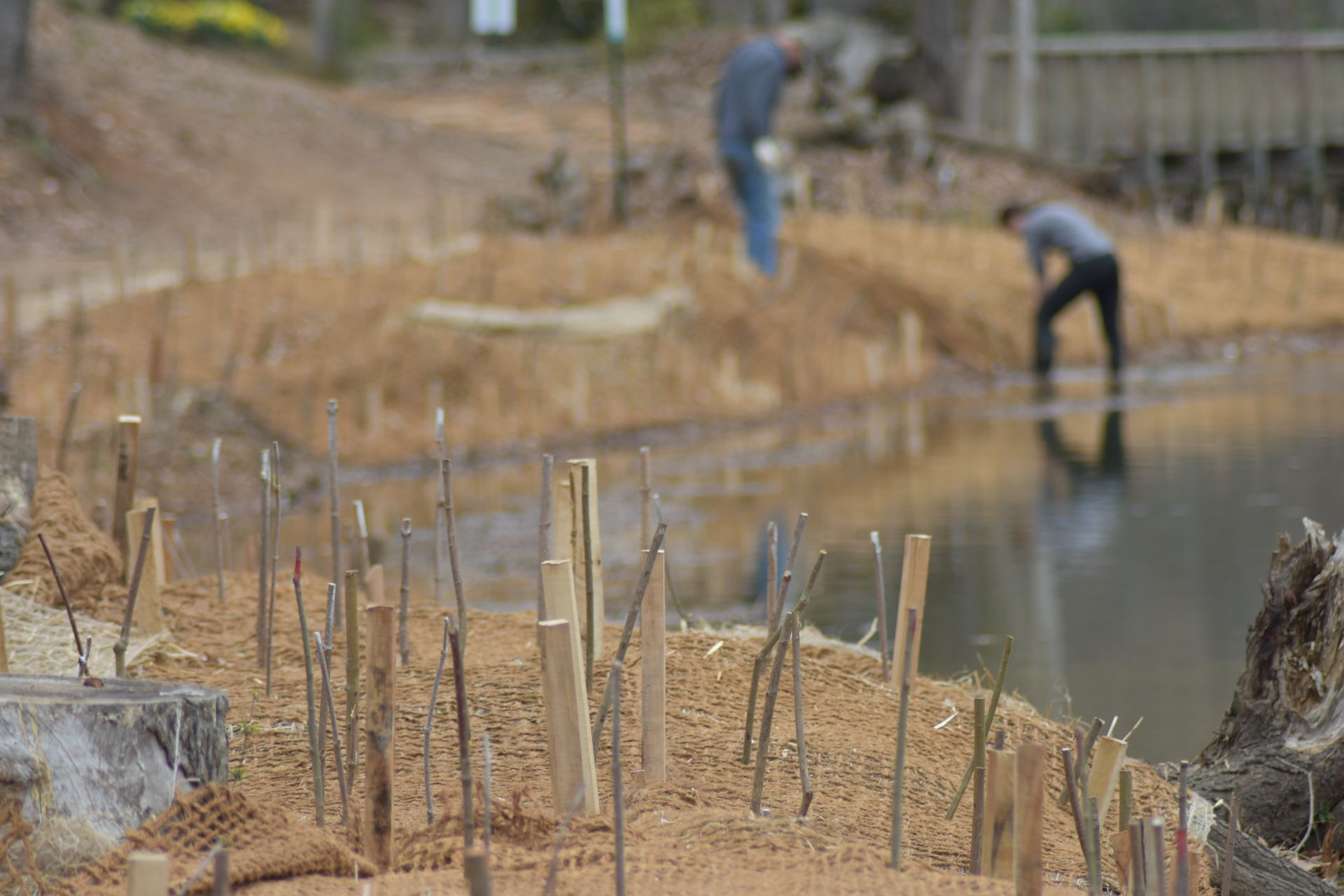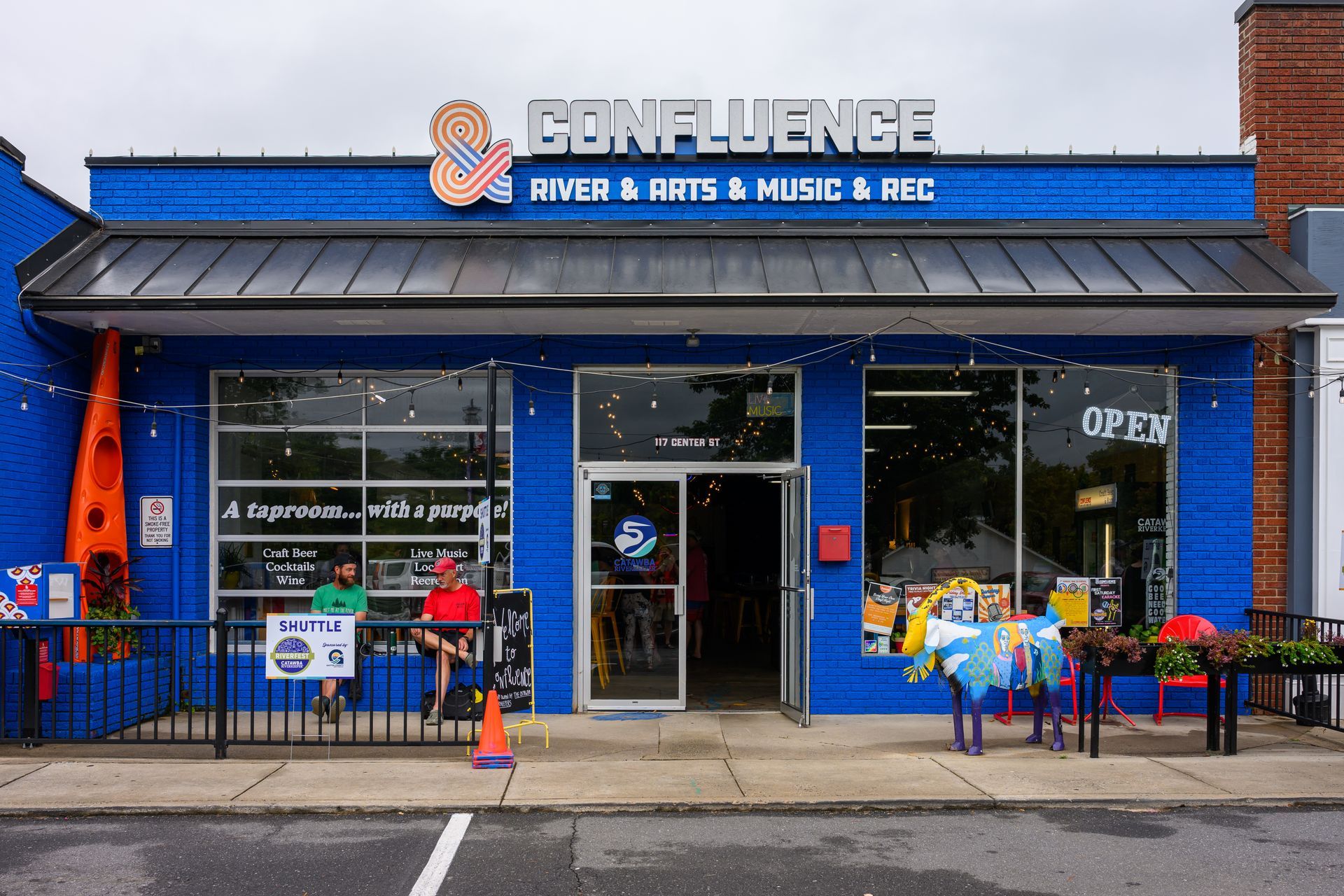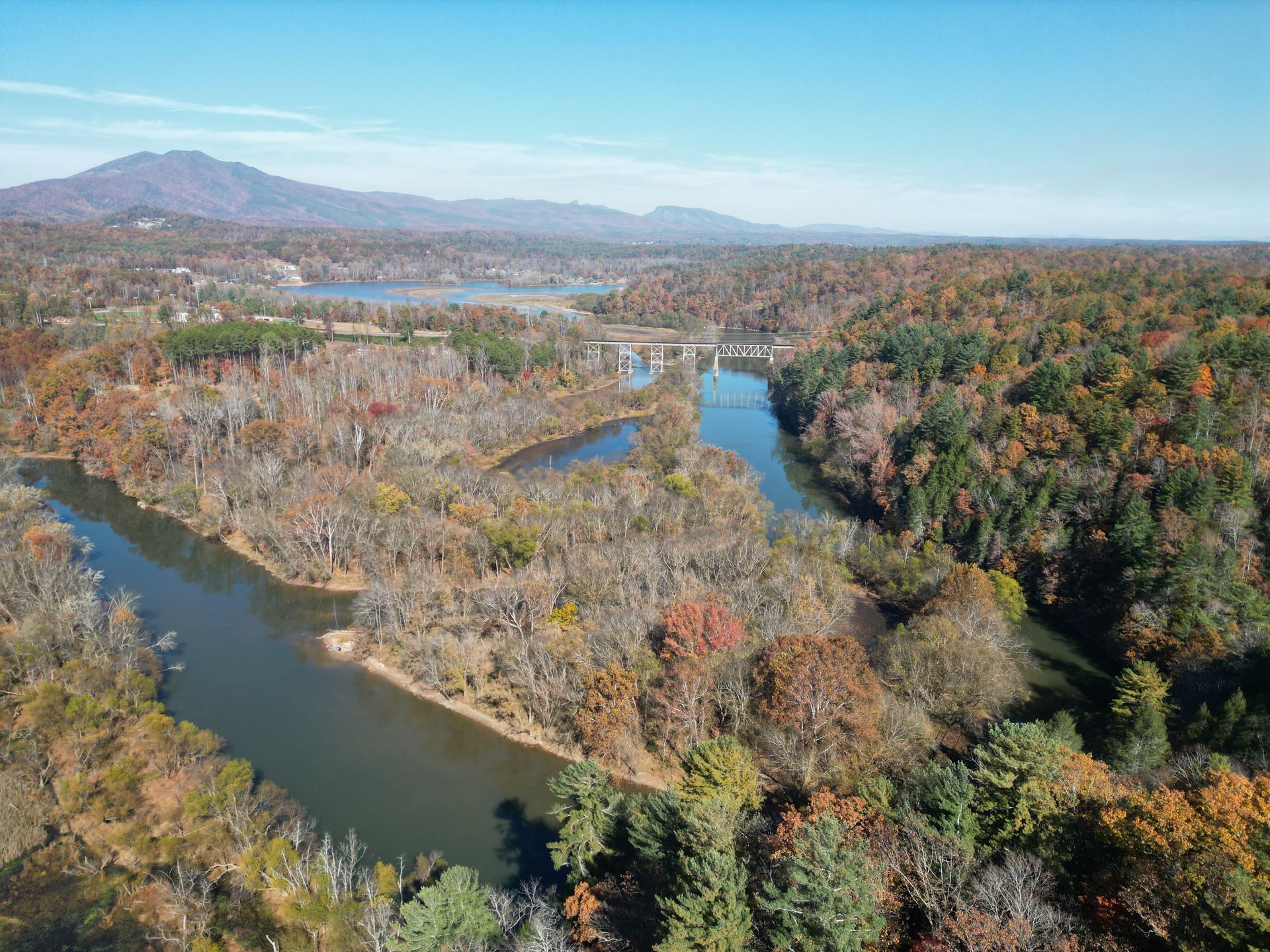Catawba Riverkeeper and CAFOs
Concentrated Animal Feeding Operations and Catawba Riverkeeper over the Years
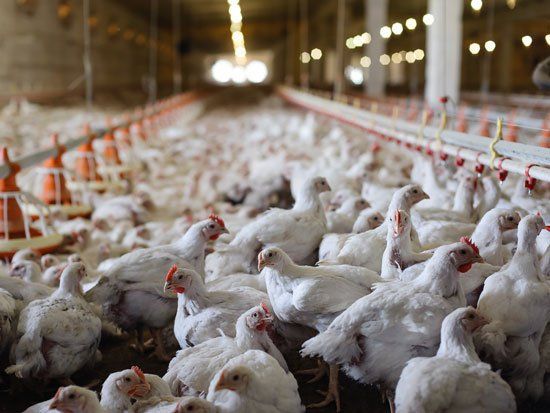
Background
Chicken and turkey production has increased by 33% over the past 20 years, with more than half of that growth occurring in the past 5 years. By some measures, North Carolina is the number one chicken producing state in the entire country.
While poultry production in the United States has increased, the total number of farms has decreased. Now, 97% of the 9 billion chickens produced for consumption each year are raised in Concentrated Animal Feeding Operations or CAFOs.
Why is this a problem? It comes down to the waste products of these CAFOs. The farms are not required to have permits or inspections for the waste, because the waste is not directly discharged into surface waters. However, the waste can be mobilized in runoff or subsurface flow and become a direct threat to water quality. The waste, known as dry litter, is a mixture of manure, bedding, and feathers that contains nutrients, heavy metals, and pathogens.
Big Poultry in North Carolina Observer Series
The Impacts of Dry Litter Poultry Operations on NC Water Quality
Locations
Catawba Riverkeeper has been engaged with this issue over the last 10 years. Our current Riverkeeper and his predecessor were aware that CAFOs are a major threat to water quality throughout the whole basin, but particularly in the Northern Basin where the majority of farms are located. Learn about CAFOs in the Catawba River Basin here.
Locating these facilities is another issue. Officials in the NC Department of Agriculture keep the locations of poultry operations confidential. They do not share the locations with the Department of Environmental Quality, who is supposed to confirm the facilities are not impacting our states waters. This lack of transparency causes many issues, namely uncertainty about the location and scope of pollution. The only way to find the facilities is through satellite imagery or observation from a private aircraft.
Our partners at the Environmental Working group have been using satellite imagery over recent years to find the houses and volunteer pilots from Southwings have been assisting with dozens of flights over the last decade.
Interactive Map by the Environmental Working Group
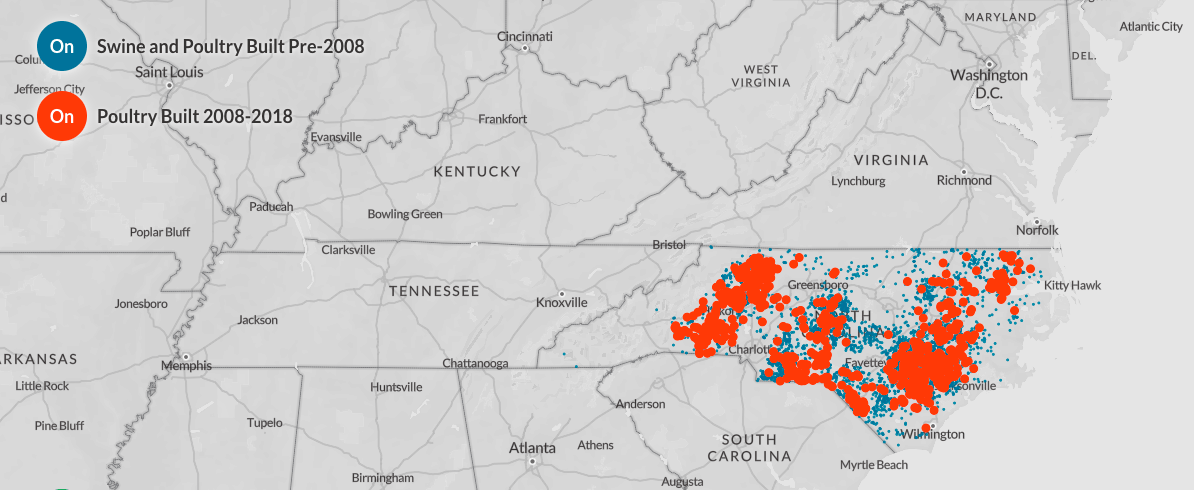
What can you do?
Given these concerns and the rapid rate of poultry expansion in North Carolina, there is an urgent need for stronger poultry industry regulation.
Pollution from CAFOs is a complicated issue. The drinking water, employment, and quality of life for communities across our basin is at stake. There is no single action that will remedy the associated issues. These issue didn't start overnight and the solutions will not happen immediately either.
Our elected officials are in the unique position to question government agencies and hold public conversations about the issues. The North Carolina General Assembly is particularly well positioned to hold these conversations.
Your legislators need to hear from you. We encourage you to contact your state legislators and let them know that pollution from CAFOs is important to you and that you’d like for them to hold hearings to find out what is really going on with this industry.
Not sure who your legislators are? Check the links below...
For North Carolina residents... CLICK HERE.
For South Carolina residents... CLICK HERE.
Until the start of the 2023 legislative session, individuals can best help by eating less factory-farmed meat and supporting environmental nonprofits such as the Catawba Riverkeeper Foundation. We need citizens to ask candidates about water quality and support those who will help protect one of our most precious resources.
Waterkeepers Carolina is hoping for regulatory action to prevent new operations from being constructed within the 500-year flood plain, increased records transparency, and establish a permitting process.
Additional Information
A Farmer's Story about CAFOs
More Farms at risk in the floodplain
CAFOs in the Catawba River Basin
CAFOs in Eastern North Carolina
